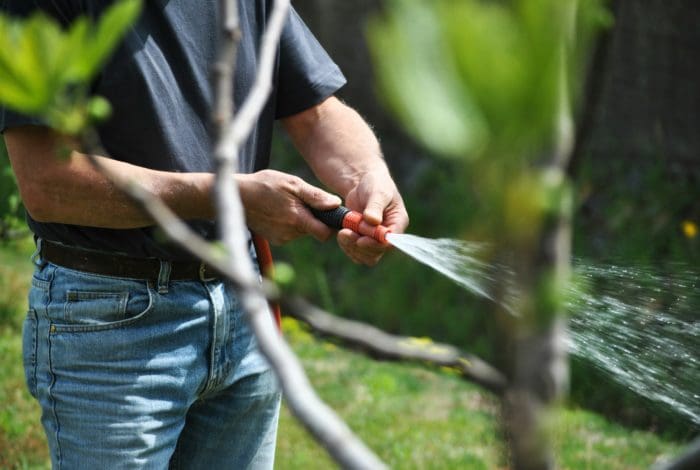Natural rodent pest control methods offer effective alternatives to chemical-based solutions, providing environmentally friendly options for managing rodent infestations. These methods prioritize the use of natural substances and practices to deter, repel, or eliminate rodents without the potential risks associated with synthetic pesticides.
In the warm and welcoming city of Mobile, Alabama, the presence of mice can pose challenges for residents seeking to maintain a pest-free home. Mice infestations, if left unaddressed, can lead to potential property damage, health concerns, and disruptions to the comfortable living environment that Mobile residents cherish. In this guide, we will explore effective methods mice control in Mobile AL, focusing on strategies that prioritize the well-being of both residents and the local ecosystem. From natural deterrents to humane trapping methods, the following recommendations offer solutions tailored to the unique pest control needs of Mobile, Alabama.

Photo by Delia Giandeini on Unsplash
Here are several natural and effective alternatives for controlling rodents:
1. Peppermint Oil:
- Application: Soak cotton balls in peppermint oil and place them in areas where rodents are active.
- Effectiveness: Peppermint oil has a strong scent that repels rodents, acting as a natural deterrent.
2. Baking Soda and Sugar Mixture:
- Application: Create a mixture of equal parts baking soda and sugar and place it in areas frequented by rodents.
- Effectiveness: Rodents are attracted to the sugar but are unable to digest the baking soda, leading to internal discomfort and discouraging return visits.
3. Natural Predators:
- Application: Encourage natural predators such as owls, hawks, and snakes by providing suitable habitats or installing nesting boxes.
- Effectiveness: Natural predators help control rodent populations by preying on them.
4. Essential Oils (Clove, Eucalyptus, and Others):
- Application: Use essential oils like clove, eucalyptus, or other strong-smelling oils in diffusers or on cotton balls in rodent-prone areas.
- Effectiveness: The intense aromas of essential oils act as repellents, making the environment less attractive to rodents.
5. Ultrasonic Devices:
- Application: Install ultrasonic devices that emit high-frequency sounds in areas where rodents are present.
- Effectiveness: These devices emit sounds that are unpleasant for rodents but generally safe for humans, serving as a non-toxic repellent.
6. Sealing Entry Points:
- Application: Identify and seal entry points, cracks, and gaps in walls, floors, and foundations.
- Effectiveness: Preventing rodents from entering the premises is a proactive and natural approach to control infestations.
7. Bay Leaves:
- Application: Place bay leaves in cupboards, pantry shelves, or areas where food is stored.
- Effectiveness: The strong scent of bay leaves is known to repel rodents, making them a natural deterrent.
8. Rodent-Repellent Plants:
- Application: Plant rodent-repellent plants such as mint, lavender, or rosemary around the exterior of buildings.
- Effectiveness: These plants release scents that rodents find unpleasant, serving as a natural barrier.
9. DIY Pepper Spray:
- Application: Mix water with cayenne pepper and spray the solution in areas frequented by rodents.
- Effectiveness: The spicy nature of cayenne pepper creates an unpleasant environment for rodents, encouraging them to leave.
10. Humane Traps:
- Application: Use humane traps to catch rodents without harming them.
- Effectiveness: Once captured, rodents can be released into natural habitats away from the property.
Considerations for Success:
- Consistency is Key:
- Consistent application of these natural methods is essential for their effectiveness. Regularly replenish deterrents and monitor rodent activity.
- Combine Strategies:
- Using a combination of natural rodent control methods often yields better results. For example, sealing entry points can be complemented by the use of deterrent scents.
- Tailor to the Environment:
- Consider the specific environment and conditions of the property when choosing natural rodent control methods. Adapt strategies to suit the location and severity of the infestation.
- Professional Guidance:
- If the infestation persists or is severe, seeking professional advice from pest control experts experienced in natural methods can be beneficial.

Implementing these natural rodent pest control alternatives not only addresses infestations but also promotes a safer and healthier living environment. Whether using essential oils, natural repellents, or preventive measures, these methods offer eco-friendly solutions for managing rodent populations without resorting to chemical pesticides.
For comprehensive assistance, residents can also explore professional services such as Rat-Exterminator.com, which specializes in targeted rodent control solutions. From natural deterrents to humane trapping methods, the following recommendations, along with professional expertise, offer solutions tailored to the unique pest control needs of Mobile, Alabama.







